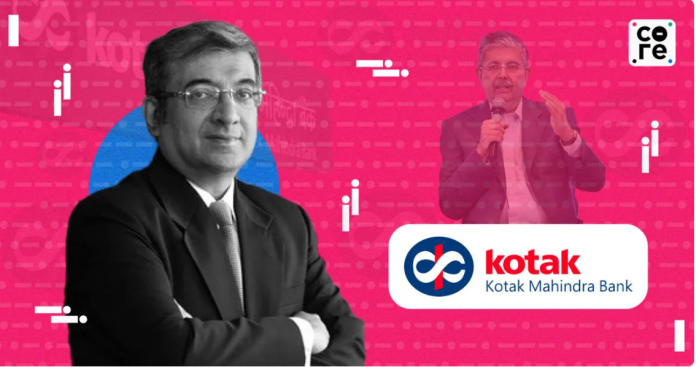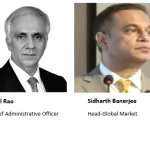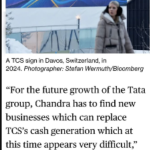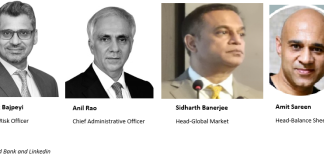Kotak Mahindra Bank’s CEO-MD Uday Kotak resigned on September 1, effective immediately. What does the move mean for the bank and how does it reflect on private bank governance in India?
Podcast by The Core can be heard here at 19:32 mins till 13:10 mins left.
/thecore/media/member_avatars/IZDeXC6wwBhRA2tKkBq1.webp)
BY The Core Team 04 Sep 2023
Uday Kotak, Managing Director (MD) and Chief Executive Officer (CEO) of Kotak Mahindra Bank resigned from his post with effect from September 1. Uday Kotak’s tenure was set to expire on December 31. Dipak Gupta, the joint managing director of Kotak Mahindra Bank will be taking over as CEO-MD temporarily, subject to the Reserve Bank of India’s (RBI) approval, said Kotak on Friday.
Kotak has been at the helm of the the affairs since 2002. Kotak and his interests hold up to 25.95 percent of the equity share capital of the bank, making him the largest shareholder of the entity. He also holds 17.26 percent of the paid-up share capital of Kotak Mahindra Bank Limited.
Kotak will continue to serve as a Non-Executive Director and will remain on the bank’s board as a significant shareholder.
Citing reasons for his early resignation, Kotak mentioned “some personal and family commitments” and significantly the bank’s bid to “sequence the process with a transition and stability perspective”. The Chairman and Joint Managing Director are also required to step down by December 31. According to Bloomberg, the bank had joined hands with a consulting firm Egon Zehnder back in February to conduct a worldwide search for a new CEO to succeed Kotak.
To understand more on this, The Core’s founder Govindraj Ethiraj spoke to Hemindra Hazari, an industry observer and commentator with an experience spanning over 25 years.
“It is an unusual move. I don’t think I have seen such a premature resignation before the [CEO’s] term ends, and that is without the RBI persuading the individual to step down” said Hazari on Uday Kotak’s resignation. About the succession plan in the bank’s leadership position, Hazari said it unlikely that the three tenures ending in December would have created a void “once they all knew that three individuals would be stepping down as of December the likely successors for those two critical posts would have already been identified.”
On Uday Kotak’s position on the board and as the bank’s non-executive chair, Hazari said “effectively makes him the backseat driver in the bank and the company and I find it shocking that the RBI has allowed such an engagement to continue.”
Hazari suggests an ideal tenure of 10 to 15 years for Indian private bank CEOs. For the Indian scenario, Hazari said, “ I am not in favor of long-term CEOs. They tend to live in an echo chamber because they dominate the organization and the board for so long that they tend to be surrounded by only Yes-men and women.”
Here are the edited excerpts of the interview:
A few weeks back, a story appeared that said that the Reserve Bank of India (RBI) was pushing Kotak Mahindra Bank to find an external candidate to take over as the MD and CEO. The story was, of course, denied by the bank. And now, Uday Kotak, founder and CEO of Kotak has suddenly resigned, at least four months ahead of the scheduled date. What is your reading on this?
This is a highly unusual move. Normally you do not see Bank CEOs prematurely resigning before their term ends. And even in the few cases that we have seen this, in those cases, there has been some regulatory pressure and that has made the bank CEO quit before the term ends. But in this case that does not appear to be the case and therefore it is possibly some kind of peace pipe offering that Uday Kotak is giving to the RBI that he will depart as CEO while still being on the board in a non-executive capacity. So ostensibly he will not influence the succession issue too much. Although, as he has said in his interview, the board has already sent names to the RBI to consider as a CEO. It is an unusual move. I don’t think I have seen such a premature resignation before the term ends, and that is without the RBI persuading the individual to step down.
Of the two reasons that Kotak has given, one of course is personal but the other one is the sequencing of departure. So if no one had stepped down, on December 31 the chairman, the Joint managing director who is the number two effectively, and Uday Kotak himself all would have gone which would have created a sudden disconnect. So he argues that they’re trying to sequence the departures so they know that the number two, Deepak Gupta could potentially, though they have not confirmed anything yet, stay on as the managing director.
See anyway, we knew that all three had to end their terms by December and by that time, they would have had candidates for both the chairman’s post as well as for the CEO’s post in mind. So I don’t believe too much in that argument because I believe that once they all knew that three individuals would be stepping down as of December the likely successors for those two critical posts would have already been identified.
The other point I think, which you also made earlier, is that Uday Kotak, much as everyone likes him including his shareholders, continuing on the board as a non-executive director is almost as good as him being there as CEO.
Most likely yes. I mean it’s very poor corporate governance that an outgoing founder-CEO does not depart from the board and continues as a non-executive non-independent director. This effectively makes him the backseat driver in the bank and the company and I find it shocking that the RBI has allowed such an engagement to continue. However, by law, RBI does not have any say in this. Normally RBI uses its moral persuasion powers to inform boards informally that such arrangements will not be tolerated by the regulator. But in this case and as I have highlighted in many cases earlier, when it comes to Uday Kotak and Kotak Mahindra Bank they are always able to get special concessions from the RBI.
If you were to take a step back, what is the RBI trying to achieve in such cases?
In such cases, it is very clear that in private-sector banks, separate ownership and management are critical. If you have a founder-CEO continuing as a non-executive non-independent director on the board as the single largest shareholder, he wields that kind of power. Then he was also the only CEO of this enterprise since its inception. Therefore he becomes a super non-independent non-executive director and his presence on the board will not only undermine the authority of the new CEO they select, but also the chairman of the board because of his shareholding and longevity [on the board]. He will undermine all the key positions of the board, which are the CEO and the chairman of the board.
The RBI is doing all of this only because it wants people to retire earlier. I mean we wouldn’t have seen the situation, let’s say as there is no retirement age, particularly in the case of private sector banks, isn’t it?
I am of the view that in banking you should not have a very long tenure because they tend to have an iconic status. On account of that iconic status, they dominate the board and they can also dominate the regulator as I have argued in the case of Uday Kotak and his relationship with the Reserve Bank of India.
In your mind, would you sort of feel that the 15-year time frame for a CEO is optimum or is it more or less?
10 to 15 years should be an optimum tenure for a private bank CEO. I don’t think it should extend beyond that. Although we have seen in the case of American Banks some very long-term CEOs. But in my view and from my experience in India, I am not in favor of long-term CEOs. They tend to live in an echo chamber because they dominate the organization and the board for so long that they tend to be surrounded by only Yes-men and women, and then it’s very difficult for them to accept any other thinking contrary to theirs.
Are there any other private banks that you’re watching now where you see similar succession challenges or transition issues?
We have to see about the other banks when these transitional issues come but at least in the private sector, the prominent CEOs are going to be there for some time. They still have those many years even by the regulatory norms to be there.
Author: The Core Team
Please read disclosure here














